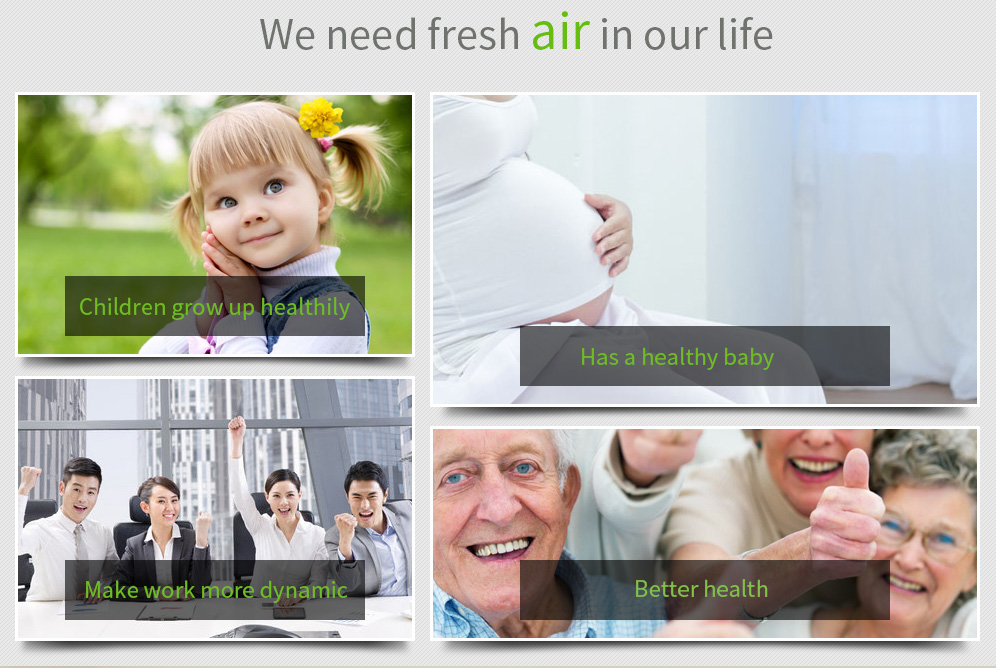Household Air Purifier: Air Purifier Helps Lung and Heart

In the random cross-over test, an air purifier was designed to filter particulate matter pollutants (diameter less than 2.5 um) and reduce pollutants by 57% (average concentration 41.3) ug/m 3) within 48 hours. Dr. Chen Renjie of Shanghai Fudan University and his colleagues reported.
The authors also noted significant decreases in blood pressure and inflammatory biomarkers, as well as significant increases in lung function.
“As far as we know, this is the first study to investigate the impact of short-term indoor air cleanliness on cardiopulmonary health and biochemical indicators in areas with severe air pollution.” I wrote it for Americans. Department of Cardiology.
Shanghai is a city with serious air pollution. During the survey period, the average daily outdoor air pollution level in Shanghai was 103 micrograms/cubic meters, and the indoor air pollution level was almost the same.
The survey was conducted among 35 healthy, non-smoking college students living in 10 dormitories in the city. Half of them were equipped with functional air purifiers and the other half with fake air purifiers. In the meantime, learning volunteers closed their doors and windows and stayed in the room.
Assess the endpoint of health status, collect blood 48 hours later for analysis, and reverse the false and normal operation of the household air purifier unit after two weeks of cleaning period. I repeated the process.
Fourteen biomarkers of inflammation, coagulation and vasoconstriction in blood were analyzed, but all circulating biomarkers responding to air clearance intervention were reduced, but only for sCD40L (blood coagulation marker) had statistical significance. (64.9%, 95% CI 30.3). %- 82.3% and three inflammatory markers:
MCP-1:17.5% (95% CI 5.5% – 30.8%)
Interleukin-1beta: 68.1% (95% CI 44.3% to 81.7%)
Myeloperoxidase: 32.8% (95% CI 5.3% – 67.5%)
Systolic blood pressure decreased by 2.7% (95% CI 0.4% to 5.1%) and diastolic blood pressure by 4.8% (95% CI 1.2% to 8.5%).
The fractional exhaled nitric oxide (a marker of respiratory inflammation) decreased by 17% (95% CI 3.6% to 32.5%).
The researchers reported moderate, non-significant improvements in lung function, such as a 3.5% increase in forced expiratory volume per second (95% CI-2.5% to 9.9%). It’s getting longer.
“Early studies in clean air countries (such as Denmark and Canada) reported the health benefits of air filtration, but this study is the first evidence for countries with serious air pollution problems. “Yes,” Chen told MedPage Today via e-mail.
“Our findings suggest significant benefits in broader cardiopulmonary outcomes. In addition, our research shows that these benefits can be achieved even after a short period of time (two days) using an air purifier. “I understand.”
The study has some limitations: it is a small, short-term study for healthy young adults, limiting the universality of the results and other potential health effects. To underestimate or neglect.
“There may be greater health benefits in long-term clean air and/or in more vulnerable populations (e.g., cardiopulmonary patients),” Chen added.
In a subsequent editorial, Dr. Sanjay Rajagopalan, M.D., University of Baltimore, and Robert Brook, M.D., Ann Arbor, University of Michigan, said: “So far, evidence on the impact of improving indoor air quality has been established at a relatively low level. The use of air purifiers to improve pollution sources mainly comes from the West. ”
“In addition to the results of previous studies, these new findings are feasible for improving indoor air filtration and reducing PM2.5 [particulate pollutant] exposure and adverse climate impacts. Evidence that reinforces this “personalized” approach “writes about Rajagopalan and Brooke.
“The observed improvement is that maintaining a high particle level (41.3 ugs/m3) during air filtration can bring benefits to pollution and pollution reduction, so the logarithmic linear support between exposure and health effects supports the general understanding of the dose-response relationship. The greater the absolute benefit, the higher the level of air pollution,” they concluded. Avenue.
However, Dr. Darryl Zeldin, scientific director of the National Institute of Environmental Health Sciences (NIEHS), has shown some warnings about air purifiers.
Contact us for more products and discounted prices
Helen:
+86 13922346046
info@olansiglobal.com
https://www.olansiglobal.com